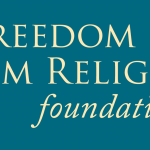New Marquette Law School Wisconsin survey finds Barnes with 7-point lead over Johnson in U.S. Senate race, Evers ahead of Michels by 2 points in the race for governor, and Biden approval rating unchanged
Please note: Complete Poll results and methodology information can be found online at law.marquette.edu/poll
MILWAUKEE – A new Marquette Law School Poll survey of Wisconsin finds a close race for governor and Lt. Gov. Mandela Barnes with a 7-percentage-point lead in the race for U.S. Senate.
Table 1 shows the vote preference for governor among registered voters since June. Beglinger was not included in the June survey. (All results in the tables are stated as percentages; the precise wording of the questions can be found in the online link noted above.)
Table 1: Vote for Wisconsin governor among registered voters
| Poll dates | Evers | Michels | Beglinger | Other | Don’t know | Refused |
| 8/10-15/22 | 45 | 43 | 7 | 0 | 3 | 2 |
| 6/14-20/22 | 48 | 41 | NA | 2 | 8 | 2 |
In the race for U.S. Senate, Democrat Mandela Barnes is supported by 51% and incumbent Republican Sen. Ron Johnson is the choice of 44%, while 1% say “neither,” 3% say they don’t know and 1% decline to answer. Vote preference includes those who say they are undecided but who say they lean toward a candidate. In the June poll, 46% preferred Barnes and 44% chose Johnson.
Table 2 shows the trend in support for the Senate candidates among registered voters since June.
Table 2: Vote for U.S. Senate among registered voters
| Poll dates | Barnes | Johnson | Neither | Don’t know | Refused |
| 8/10-15/22 | 51 | 44 | 1 | 3 | 1 |
| 6/14-20/22 | 46 | 44 | 1 | 7 | 2 |
The survey was conducted Aug. 10-15, 2022, interviewing 811 Wisconsin registered voters, with a margin of error of +/-4.2 percentage points.
Partisan support for the candidates in the race for governor is shown in Table 3. Both Democratic and Republican voters are strongly unified behind their respective party’s candidates, with 91% of Democrats supporting Evers and 89% of Republicans supporting Michels. Forty-one percent of independents back Evers, while 37% prefer Michels. The independent candidate, Beglinger, receives 12% from independent voters and 4% from Republicans and 3% from Democrats.
Table 3: Vote for governor among registered voters, by party identification
(a) August
| Party ID | Evers | Michels | Beglinger | Other | Don’t know | Refused |
| Republican | 6 | 89 | 4 | 0 | 1 | 0 |
| Independent | 41 | 37 | 12 | 0 | 7 | 2 |
| Democrat | 91 | 4 | 3 | 0 | 1 | 1 |
(b) June
| Party ID | Evers | Michels | Other | Don’t know | Refused |
| Republican | 5 | 86 | 1 | 7 | 1 |
| Independent | 49 | 35 | 3 | 11 | 2 |
| Democrat | 95 | 2 | 0 | 2 | 0 |
Partisan support for the U.S. Senate candidates is shown in Table 4. As in the governor’s race, partisans are well aligned with their party’s candidates, with 95% of Democrats supporting Barnes and 92% of Republicans supporting Johnson. Fifty-two percent of independents back Barnes, while 38% prefer Johnson.
Table 4: Vote for U.S. Senate among registered voters, by party identification
(a) August
| Party ID | Barnes | Johnson | Neither | Don’t know | Refused |
| Republican | 7 | 92 | 0 | 1 | 1 |
| Independent | 52 | 38 | 2 | 5 | 2 |
| Democrat | 95 | 4 | 0 | 1 | 1 |
(b) June
| Party ID | Barnes | Johnson | Neither | Don’t know | Refused |
| Republican | 6 | 89 | 0 | 4 | 0 |
| Independent | 41 | 41 | 3 | 13 | 3 |
| Democrat | 95 | 2 | 0 | 3 | 0 |
Among Republicans, 83% say they are absolutely certain to vote in November’s elections, as do 82% of Democrats and 66% of independents. Certainty of voting by party is shown in Table 5. Registered voters were asked, “Are you absolutely certain to vote, very likely to vote, are the chances 50-50, or don’t you think you will vote?”
Table 5: What are the chances that you will vote in the November 2022 general election for governor, Congress, and other offices?
(a) August
| Party ID | Absolutely certain | Very likely | 50-50 | Will not vote | Don’t know |
| Republican | 83 | 11 | 4 | 2 | 0 |
| Independent | 66 | 16 | 14 | 3 | 0 |
| Democrat | 82 | 8 | 5 | 5 | 0 |
The effect of the different levels of voter turnout on vote for governor is shown in Table 6. The first row shows preference among all registered voters, with the second row showing the results for an electorate composed of those either “absolutely certain” to vote or “very likely” to vote. The third row shows the results among only the most likely voters—those who say they are absolutely certain to vote.
Table 6: Vote for governor, by certainty of voting
| How likely to vote | Evers | Michels | Beglinger | Other | Don’t know |
| All registered voters | 45 | 43 | 7 | 0 | 3 |
| Certain or very likely to vote | 46 | 44 | 5 | 0 | 2 |
| Only those certain to vote | 48 | 44 | 4 | 0 | 2 |
Table 7 shows the vote for U.S. Senate by certainty of voting.
Table 7: Vote for U.S. Senate, by certainty of voting
| How likely to vote | Barnes | Johnson | Neither | Don’t know |
| All registered voters | 51 | 44 | 1 | 3 |
| Certain or very likely to vote | 52 | 45 | 0 | 2 |
| Only those certain to vote | 52 | 45 | 0 | 1 |
Perceived candidate traits
Table 8 shows the perception of the trait that candidates “care about people like you.” Beglinger was not included in the traits battery of questions in this survey.
The relative lack of familiarity with the non-incumbent candidates, Michels and Barnes, is evident in the higher percentages that say they “don’t know” about them, compared to the two incumbents, Evers and Johnson.
Table 8: For each of the following candidates, would you say they are someone who cares about people like you, or don’t they care about people like you?
| Candidate | Cares | Doesn’t care | Don’t know |
| Evers | 54 | 38 | 9 |
| Michels | 38 | 38 | 23 |
| Barnes | 50 | 27 | 23 |
| Johnson | 41 | 49 | 10 |
Table 9 shows the perception of the trait that candidates “share my values.” As with the previous table, the non-incumbents, Michels and Barnes, have higher rates of “don’t know” responses on these items.
Table 9: For each of the following candidates, would you say they are someone who shares your values or don’t they share your values?
| Candidate | Shares values | Doesn’t share values | Don’t know |
| Evers | 50 | 41 | 9 |
| Michels | 38 | 38 | 23 |
| Barnes | 45 | 31 | 24 |
| Johnson | 40 | 50 | 10 |
Table 10 shows the favorable and unfavorable ratings of the candidates since June, along with those who say they haven’t heard enough or don’t know. Beglinger was not included in this battery of items.
The non-incumbents have become substantially better known following their primary victories on Aug. 9, though they remain much less well known than the incumbents.
Table 10: Do you have a favorable or unfavorable opinion of [INSERT NAME] or haven’t you heard enough about them yet?
(a) Evers
| Poll dates | Favorable | Unfavorable | Haven’t heard enough | Don’t know | Refused |
| 8/10-15/22 | 46 | 41 | 6 | 6 | 0 |
| 6/14-20/22 | 44 | 42 | 11 | 2 | 0 |
(b) Michels
| Poll dates | Favorable | Unfavorable | Haven’t heard enough | Don’t know | Refused |
| 8/10-15/22 | 33 | 33 | 24 | 10 | 0 |
| 6/14-20/22 | 22 | 22 | 51 | 5 | 0 |
(c) Barnes
| Poll dates | Favorable | Unfavorable | Haven’t heard enough | Don’t know | Refused |
| 8/10-15/22 | 37 | 22 | 30 | 11 | 0 |
| 6/14-20/22 | 21 | 16 | 57 | 6 | 0 |
(d) Johnson
| Poll dates | Favorable | Unfavorable | Haven’t heard enough | Don’t know | Refused |
| 8/10-15/22 | 38 | 47 | 9 | 6 | 0 |
| 6/14-20/22 | 37 | 46 | 14 | 2 | 0 |
Evers’ job approval
Table 11 shows approval of how Evers has handled his job as governor since February 2022. In a series of four polls beginning in February, Evers’ net approval has declined from +9 to +2 in August.
Table 11: Overall, do you approve or disapprove of the way Tony Evers is handling his job as Governor of Wisconsin?
| Poll dates | Net approval | Approve | Disapprove | Don’t know | Refused |
| 8/10-15/22 | 2 | 47 | 45 | 8 | 1 |
| 6/14-20/22 | 3 | 48 | 45 | 6 | 1 |
| 4/19-24/22 | 6 | 49 | 43 | 7 | 1 |
| 2/22-27/22 | 9 | 50 | 41 | 8 | 1 |
Importance of issues
In each survey by the Marquette Law School Poll since August 2021, respondents have been asked to rate how concerned they are with a variety of issues. Table 12 shows the concern with nine issues in the current survey, sorted from highest to lowest percentage saying they are “very concerned.”
Table 12: How concerned are you about each of the following? Are you very concerned, somewhat concerned, not too concerned, or not at all concerned with …
| Issue | Very concerned | Somewhat concerned | Not too concerned | Not at all concerned |
| Inflation | 67 | 27 | 4 | 0 |
| Gun violence | 61 | 26 | 6 | 5 |
| Crime | 58 | 30 | 9 | 2 |
| Abortion policy | 55 | 25 | 8 | 7 |
| Public schools | 54 | 34 | 7 | 3 |
| Taxes | 47 | 38 | 12 | 3 |
| Climate change | 41 | 28 | 13 | 17 |
| Illegal immigration | 40 | 28 | 15 | 16 |
| Coronavirus | 20 | 35 | 20 | 25 |
Inflation ranks as the top issue concern, but as Table 13 shows, there has been a decline in concern about this issue in August, following falling gasoline prices and a lower core rate of inflation from June to July according to the monthly consumer price index. There had been a steady rise in concern about inflation from August 2021 until June 2022.
Table 13: Concern about inflation, Aug. 2021-Aug. 2022
| Poll dates | Very concerned | Somewhat concerned | Not too concerned | Not at all concerned |
| 8/10-15/22 | 67 | 27 | 4 | 0 |
| 6/14-20/22 | 75 | 20 | 4 | 1 |
| 4/19-24/22 | 69 | 23 | 6 | 1 |
| 2/22-27/22 | 68 | 28 | 3 | 1 |
| 10/26-31/21 | 64 | 28 | 6 | 1 |
| 8/3-8/21 | 49 | 35 | 11 | 3 |
Partisans differ substantially in their concern over particular issues, as shown in Table 14. Panel (a) is sorted by Republican concern and panel (b) by concern among Democrats. The entries are the percentage of each partisan group who say they are “very concerned” about the issue.
Table 14: Issue concerns, percent ‘very concerned,’ by party identification
(a) Listed in order of concern among Republicans
| Issue | Republican | Independent | Democrat |
| Inflation | 91 | 67 | 42 |
| Crime | 80 | 47 | 53 |
| Taxes | 72 | 44 | 26 |
| Illegal immigration | 67 | 34 | 19 |
| Public schools | 60 | 50 | 53 |
| Gun violence | 45 | 59 | 77 |
| Abortion policy | 39 | 53 | 73 |
| Coronavirus | 9 | 15 | 40 |
| Climate change | 8 | 40 | 79 |
(b)Listed in order of concern among Democrats
| Issue | Republican | Independent | Democrat |
| Climate change | 8 | 40 | 79 |
| Gun violence | 45 | 59 | 77 |
| Abortion policy | 39 | 53 | 73 |
| Public schools | 60 | 50 | 53 |
| Crime | 80 | 47 | 53 |
| Inflation | 91 | 67 | 42 |
| Coronavirus | 9 | 15 | 40 |
| Taxes | 72 | 44 | 26 |
| Illegal immigration | 67 | 34 | 19 |
Abortion
In June, the U.S. Supreme Court overturned the 1973 Roe v. Wade decision which had meant that abortion was legal in all states. The public, both overall and in each partisan category, has heard a great deal about the June 2022 decision, as shown in Table 15.
Table 15: How much have you heard or read about a recent United States Supreme Court decision on abortion?, total and by party identification
| Party ID | A lot | A little | Nothing at all | Don’t know |
| Total | 79 | 17 | 3 | 0 |
| Republican | 76 | 22 | 2 | 0 |
| Independent | 78 | 16 | 5 | 1 |
| Democrat | 86 | 12 | 2 | 0 |
The decision to overturn Roe v. Wade is opposed by a majority of Wisconsin registered voters, including majorities of independents and Democrats, while it is favored by a majority of Republicans in the state, as shown in Table 16.
Table 16: Do you favor or oppose the recent Supreme Court decision to overturn Roe versus Wade, thus striking down the 1973 decision that made abortion legal in all 50 states?
| Party ID | Favor | Oppose | Haven’t heard of decision | Don’t Know | Refused |
| Total | 33 | 60 | 1 | 4 | 2 |
| Republican | 62 | 28 | 0 | 8 | 2 |
| Independent | 31 | 62 | 2 | 2 | 3 |
| Democrat | 5 | 92 | 0 | 2 | 1 |
Views of abortion policy have shifted by a few points, in favor of legal abortions, since the June 2022 Marquette Law School Poll, which was conducted before the Supreme Court’s abortion decision. Table 17 shows the change from June to August, overall and by party identification.
Table 17: Do you think abortion should be legal in all cases, legal in most cases, illegal in most cases, or illegal in all cases?
(a) Opinion in June and August
| Poll dates | Legal in all cases | Legal in most cases | Illegal in most cases | Illegal in all cases | Don’t know | Refused |
| 8/10-15/22 | 30 | 35 | 25 | 5 | 3 | 1 |
| 6/14-20/22 | 27 | 31 | 24 | 11 | 5 | 2 |
(b) Opinion by party identification, August
| Party ID | Legal in all cases | Legal in most cases | Illegal in most cases | Illegal in all cases | Don’t know | Refused |
| Republican | 9 | 24 | 55 | 10 | 2 | 1 |
| Independent | 30 | 40 | 18 | 5 | 4 | 2 |
| Democrat | 53 | 41 | 5 | 1 | 1 | 0 |
(c) Opinion by party identification, June
| Party ID | Legal in all cases | Legal in most cases | Illegal in most cases | Illegal in all cases | Don’t know | Refused |
| Republican | 8 | 21 | 43 | 20 | 6 | 1 |
| Independent | 30 | 30 | 23 | 10 | 5 | 2 |
| Democrat | 45 | 42 | 6 | 5 | 3 | 0 |
The respondents to the August survey overwhelmingly support allowing legal abortions in the case of rape or incest, with 79% or more support in each partisan group, as shown in Table 18.
Table 18: Do you think Wisconsin should or should not allow a woman to obtain a legal abortion if she became pregnant as the result of rape or incest?
| Party ID | Should allow | Should not allow | Don’t Know | Refused |
| Total | 88 | 8 | 4 | 1 |
| Republican | 79 | 16 | 4 | 2 |
| Independent | 87 | 6 | 5 | 2 |
| Democrat | 97 | 1 | 1 | 0 |
Jan. 6th and Opinion of Trump
More than half of respondents say they have heard a lot about the hearings of the House Select Committee on the events at the U.S. Capitol on Jan. 6, 2021. Table 19 shows how much respondents have heard, first among the total sample and then for each partisan group.
Table 19: How much have you heard or read about the hearings of the House Select Committee on Jan. 6th?
| Party ID | A lot | A little | Nothing at all | Don’t know |
| Total | 57 | 27 | 15 | 1 |
| Republican | 53 | 32 | 14 | 1 |
| Independent | 53 | 28 | 19 | 0 |
| Democrat | 70 | 19 | 11 | 1 |
Views of former President Donald Trump’s responsibility for violence at the Capitol on Jan. 6, 2021, vary sharply by party identification, as shown in Table 20.
Table 20: How much responsibility, if any, should Donald Trump bear for the violence of some of his supporters in the United States Capitol on Jan. 6, 2021?
| Party ID | A lot | A little | Nothing at all | Don’t know | Refused |
| Total | 47 | 19 | 31 | 2 | 2 |
| Republican | 8 | 26 | 62 | 3 | 2 |
| Independent | 46 | 22 | 29 | 1 | 2 |
| Democrat | 89 | 7 | 2 | 2 | 0 |
Opinion on the accuracy of the results of the 2020 presidential election continues to sharply divide the public, with 66% saying they are very or somewhat confident and 32% saying they are not too confident or not at all confident in the election result. These views overall and by party identification are shown in Table 21.
Table 21: How confident are you that, here in Wisconsin, the votes for president were accurately cast and counted in the 2020 election?
| Party ID | Very confident | Somewhat confident | Not too confident | Not at all confident | Don’t know | Refused |
| Total | 48 | 18 | 15 | 17 | 2 | 1 |
| Republican | 13 | 24 | 25 | 37 | 1 | 0 |
| Independent | 46 | 21 | 15 | 13 | 3 | 1 |
| Democrat | 90 | 5 | 3 | 0 | 2 | 0 |
Among all registered voters, 38% have a favorable opinion of Trump, 57% have an unfavorable opinion of him and 5% lack an opinion or declined to answer. These views have barely changed during 2022, as shown in Table 22.
Table 22: Do you have a favorable or unfavorable opinion of Donald Trump or haven’t you heard enough about him yet?
| Poll dates | Favorable | Unfavorable | Haven’t heard enough | Don’t know | Refused |
| 8/10-15/22 | 38 | 57 | 1 | 4 | 0 |
| 6/14-20/22 | 39 | 56 | 3 | 2 | 0 |
| 4/19-24/22 | 36 | 58 | 2 | 3 | 1 |
| 2/22-27/22 | 36 | 57 | 2 | 3 | 2 |
Table 23 shows opinion of Trump overall and by party identification in the August survey. A substantial majority of Republicans hold a favorable view of Trump, while majorities of independents and Democrats have an unfavorable opinion of him.
Table 23: Do you have a favorable or unfavorable opinion of Donald Trump or haven’t you heard enough about him yet? August 2022
| Party ID | Favorable | Unfavorable | Haven’t heard enough | Don’t know | Refused |
| Total | 38 | 57 | 1 | 4 | 0 |
| Republican | 77 | 15 | 2 | 5 | 1 |
| Independent | 34 | 62 | 0 | 4 | 0 |
| Democrat | 3 | 95 | 0 | 1 | 1 |
A majority of Wisconsin Republicans would like Trump to run for president in 2024, while a majority of independents and Democrats, and an overall majority, prefer that he not seek the presidency, as shown in Table 24.
Table 24: Would you like to see Donald Trump run for president in 2024, or not?
| Party ID | Yes | No | Don’t know | Refused |
| Total | 29 | 65 | 5 | 1 |
| Republican | 59 | 33 | 7 | 1 |
| Independent | 26 | 66 | 6 | 2 |
| Democrat | 3 | 97 | 0 | 0 |
The entire survey period, which began on Aug. 10, 2022, ran after the FBI executed a search warrant at Trump’s property in Mar-a-Lago, in Florida, on Aug. 8, although the survey had already been finalized and so did not specifically inquire about the development.
Other issues
Support for a requirement of paid parental leave for new parents is strong overall, with 78% in favor of requiring businesses to offer paid leave and 17% opposed. Table 25 shows that majorities of each party favor such a proposal.
Table 25: Do you favor or oppose a proposal that would require businesses to provide paid family leave for mothers and fathers of new babies?
| Party ID | Favor | Oppose | Don’t Know | Refused |
| Total | 78 | 17 | 5 | 1 |
| Republican | 65 | 28 | 4 | 3 |
| Independent | 79 | 15 | 6 | 0 |
| Democrat | 90 | 6 | 4 | 0 |
A majority, 69%, favor legalization of marijuana, while 23% are opposed. Table 26 shows opinion overall and by party.
Table 26: Do you think the use of marijuana should be made legal, or not?
| Party ID | Yes, legal | No, illegal | Don’t Know | Refused |
| Total | 69 | 23 | 8 | 0 |
| Republican | 51 | 39 | 10 | 0 |
| Independent | 75 | 20 | 4 | 0 |
| Democrat | 81 | 10 | 8 | 1 |
Forty-three percent of registered voters say it is more important to reduce property taxes, while 52% say it is more important to increase spending on public schools. When last asked in April 2022, 46% said reduce property taxes and 50% said increase spending on public schools. Table 27 shows the partisan divide on support for property tax cuts vs. spending on schools in the August survey.
Table 27: Which is more important to you: reduce property taxes or increase spending on public schools?
| Party ID | Reducing property taxes | Increasing spending on public schools | Don’t know | Refused |
| Total | 43 | 52 | 5 | 0 |
| Republican | 70 | 23 | 6 | 1 |
| Independent | 40 | 54 | 5 | 0 |
| Democrat | 16 | 80 | 4 | 0 |
Expanding the number of students using publicly funded vouchers to attend private schools is favored by 46% and opposed by 45%. This is little changed from a year ago, in August 2021, when 45% favored and 45% were opposed. Table 28 shows how opinion on this issue differs by party identification in the current survey.
Table 28: Would you favor or oppose expanding the number of students using publicly funded vouchers to attend private schools?
| Party ID | Favor expanding vouchers | Oppose expanding vouchers | Don’t know |
| Total | 46 | 45 | 9 |
| Republican | 57 | 35 | 8 |
| Independent | 51 | 42 | 8 |
| Democrat | 26 | 62 | 13 |
Opinion on vouchers is sensitive to the wording of the question. In the April 2022 survey, the question was phrased as “Do you favor or oppose allowing all students statewide to use publicly funded vouchers to attend private or religious schools if they wish to do so?” With that wording in April, 58% favored extending vouchers to all students, and 33% were opposed.
Other trends
A majority of respondents, 56%, think the state is off on the wrong track, while 35% say it is headed in the right direction. The trend since February is shown in Table 29.
Table 29: Thinking just about the state of Wisconsin, do you feel things in Wisconsin are generally going in the right direction, or do you feel things have gotten off on the wrong track?
| Poll dates | Right direction | Wrong track | Don’t know | Refused |
| 8/10-15/22 | 35 | 56 | 9 | 0 |
| 6/14-20/22 | 37 | 56 | 6 | 0 |
| 4/19-24/22 | 36 | 56 | 7 | 0 |
| 2/22-27/22 | 39 | 53 | 8 | 1 |
In August, 40% approve of the way President Joe Biden is handling his job, while 55% disapprove. In June, 40% approved and 57% disapproved. The trend in Biden approval in 2022 is shown in Table 30.
Table 30: Overall, do you approve or disapprove of the way Joe Biden is handling his job as president?
| Poll dates | Approve | Disapprove | Don’t know | Refused |
| 8/10-15/22 | 40 | 55 | 5 | 1 |
| 6/14-20/22 | 40 | 57 | 3 | 0 |
| 4/19-24/22 | 43 | 53 | 3 | 1 |
| 2/22-27/22 | 43 | 52 | 3 | 2 |
Sen. Tammy Baldwin is seen favorably by 39% and unfavorably by 37%. The trend in views of Baldwin is shown in Table 31.
Table 31: Do you have a favorable or unfavorable opinion of Tammy Baldwin or haven’t you heard enough about her yet?
| Poll dates | Favorable | Unfavorable | Haven’t heard enough | Don’t know | Refused |
| 8/10-15/22 | 39 | 37 | 18 | 6 | 0 |
| 6/14-20/22 | 39 | 37 | 20 | 3 | 1 |
| 4/19-24/22 | 43 | 36 | 17 | 3 | 0 |
| 2/22-27/22 | 42 | 36 | 18 | 3 | 1 |
About the Marquette Law School Poll
The Marquette Law School Poll is the most extensive statewide polling project in Wisconsin history. This poll interviewed 811 registered Wisconsin voters by landline or cell phone, Aug. 10-15, 2022. The margin of error is +/-4.2 percentage points for the full sample.
Items asked of half-samples on Form A include concern about public schools, inflation, abortion policy, taxes, gun violence, and crime. Form B asked concern about the coronavirus pandemic, illegal immigration, and climate change. Form B also included items on legalization of marijuana, property taxes and school spending, and expansion of school vouchers.
The partisan makeup of the sample, including those who lean to a party, is 45% Republican, 44% Democratic, and 9% independent. The partisan makeup of the sample, excluding those who lean to a party, is 30% Republican, 29% Democratic, and 41% independent.
Since January 2020, the long-term partisan balance, including those who lean to a party, in the Marquette poll has been 45% Republican and 44 % Democratic, with 9% independent. Partisanship excluding those who lean has been 30% Republican and 28% Democratic, with 41% independent.
The entire questionnaire, methodology statement, full results and breakdowns by demographic groups are available at law.marquette.edu/poll/results-and-data.
NOTE: This press release was submitted to Urban Milwaukee and was not written by an Urban Milwaukee writer. While it is believed to be reliable, Urban Milwaukee does not guarantee its accuracy or completeness.
Mentioned in This Press Release
Recent Press Releases by Marquette University
New Marquette Law School Poll national survey finds approval of U.S. Supreme Court edges upward, but 55% disapprove of the Court’s work
Oct 17th, 2024 by Marquette UniversityLarge majorities of both Republicans and Democrats favor strict ethics code, fixed terms for justices; majority of those polled say justices decide cases based more on politics than law
New Marquette Law School Poll national survey finds presidential race extremely tight, enthusiasm for voting high among both Democrats and Republicans but low among independents
Oct 16th, 2024 by Marquette UniversityPlease note: Complete Poll results and methodology information can be found online at law.marquette.edu/poll






















